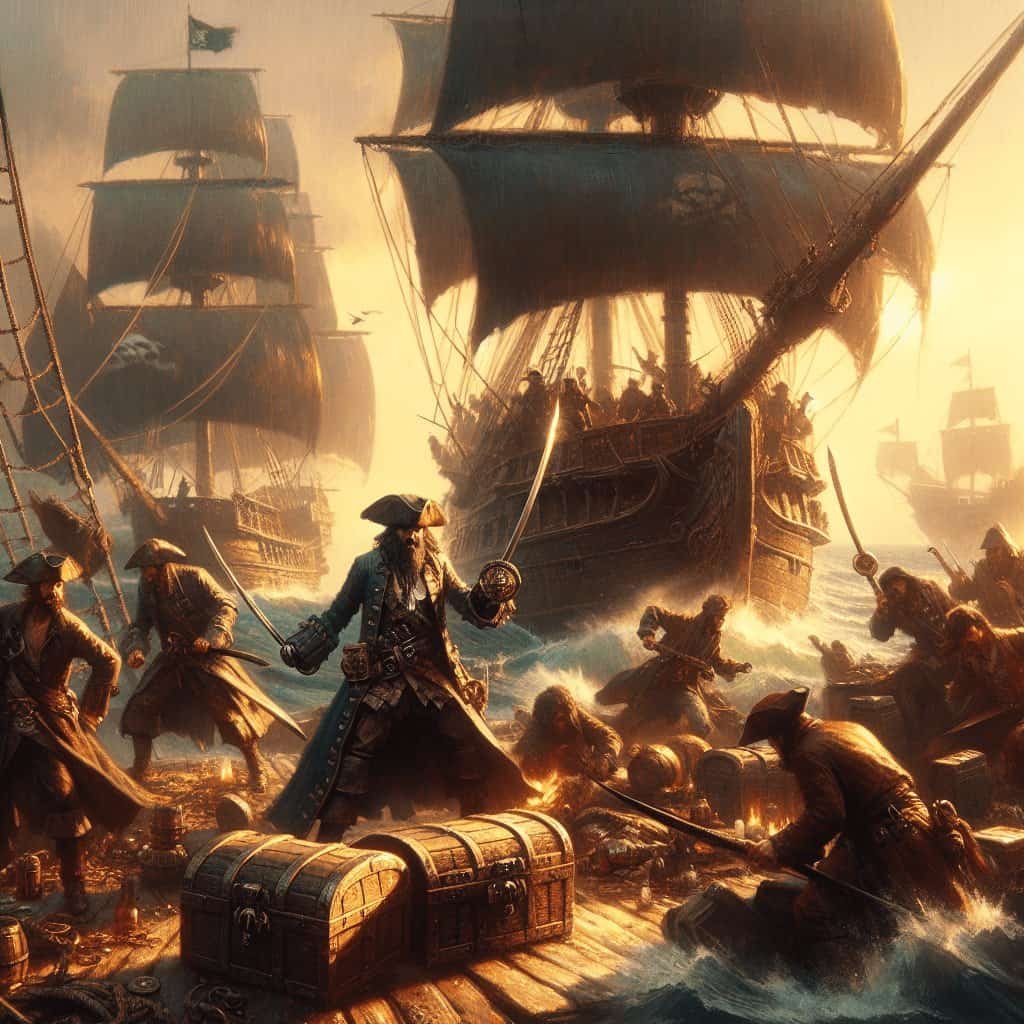Who Was the Pirate King in History?
The title “Pirate King” evokes images of a fearsome leader ruling the high seas with an iron fist. While no official title of Pirate King existed, several historical figures have been romanticized or viewed as the epitome of pirate leadership. Among these, perhaps none is more famous than Edward Teach, better known as Blackbeard. This article explores the life of Blackbeard and his claim to the title of the pirate king, along with a brief look at other notable pirate leaders.
The Legend of Blackbeard
Edward Teach, or Blackbeard, was an English pirate who operated around the West Indies and the eastern coast of the American colonies during the early 18th century. Despite his relatively short career, his fearsome reputation has made him an iconic figure in pirate history.
- Early Life: Little is known about Blackbeard’s early life. He is believed to have been born in Bristol, England, and he turned to piracy in the early 1700s after serving as a privateer during Queen Anne’s War.
- Rise to Power: Blackbeard captured a French merchant vessel, renamed her Queen Anne’s Revenge, and modified her with 40 guns. With this formidable ship, he blockaded the port of Charleston, South Carolina, and conducted numerous brazen raids.
- Reputation: Blackbeard was known for his terrifying image; he reportedly tied slow-burning fuses into his beard during battles to create a fearsome appearance. This psychological warfare helped him maintain control without excessive violence.
Other Notable Pirate Leaders
While Blackbeard is a prominent figure, other pirate leaders also made significant marks in history. Here are a few notable ones:
- Bartholomew Roberts: Known as Black Bart, Roberts is considered by many as the most successful pirate of the Golden Age of Piracy, capturing over 400 ships. His strict code of discipline and his preference for attacking ships without causing harm to the crew made him respected and feared.
- Henry Every: Dubbed &#
8220;The King of Pirates” by his contemporaries, Every conducted what is considered one of the most profitable pirate raids in history. His capture of the Mughal ship Ganj-i-Sawai earned him infamy and a massive bounty on his head.
- Anne Bonny and Mary Read: These two female pirates defied the norms of their time by becoming fearsome pirates in a male-dominated world. They were part of Calico Jack’s crew and were known for their ferocity in battle.
Blackbeard’s Legacy and the Myth of the Pirate King
Blackbeard’s death in 1718 marked the end of his reign on the seas but began his legacy as the archetypal pirate king. His clever use of his fearsome image, strategic prowess, and the sheer audacity of his exploits have cemented his status in popular culture as the epitome of a pirate leader.
Historians often debate the accuracy of the tales surrounding Blackbeard and other pirate legends. However, the fascination with these figures highlights a broader cultural appreciation of the rebellious spirit and freedom that pirates represent.
Conclusion
In the annals of piracy, no one figure can truly claim the title of “Pirate King” in a formal sense. However, through a combination of fear, charisma, and naval skill, Blackbeard arguably comes closest to what many would envision as a pirate king. His legacy, alongside other notable pirates, continues to captivate the imagination of people around the world, symbolizing an era of unbridled freedom and adventure on the high seas.
While the golden age of piracy has long since passed, the stories of these pirate kings still inspire books, movies, and folklore, keeping the spirit of their age alive for future generations to admire and explore.
